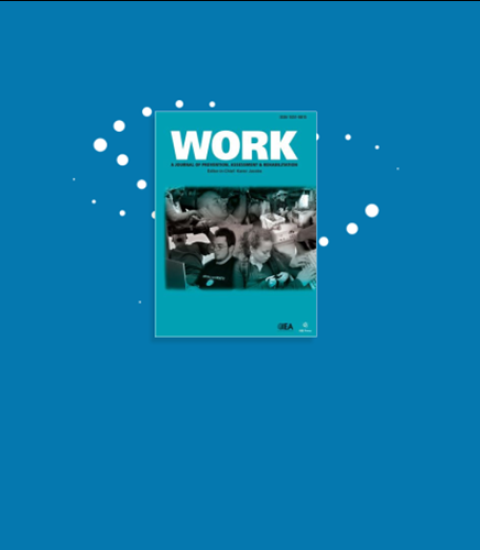
“This collection of papers was inspired by funding received from the EU under the Horizon 2020 research program,” explains Guest Editor Andree Woodcock, PhD, Centre for Arts, Memory and Communities, Institute of Creative Cultures, Coventry University. “In its sustainable and smart mobility strategy, the EU outlined new opportunities linked to the transport sector’s digital transformation, including an improved working environment and better-quality jobs that could become more attractive for women and result in equality mainstreaming and address the need for gender disaggregated data. Further resolutions address labor market participation, equal treatment of men and women at work that ensures guaranteed income and flexible working arrangements, stereotyping, and better working conditions.”
The transport sector is a highly technical, engineering-focused industry. Globally, 16% to 28% of women are employed in the transport sector, often working in sales and administration.
Key issues addressed in the issue are:
Firstly, increasing the number of women in transport and placing them in influential positions, which is viewed by the EU and other agencies as critical to bringing about fairer and more sustainable transport. The gender imbalance in the industry means that transport services and vehicles are designed by men, for the male commuter. Understanding employment conditions in the transport sector is key to increasing the number of women employed in it and supporting those already employed.
Secondly, designing transport services and vehicles to support women’s mobility needs. The poor design of public transport influences the way in which women travel to work and their overall health and wellbeing when they undertake work-related journeys. They may be so anxious about their safety, especially after dark and when traveling alone, that they take more expensive forms of transport or work closer to home, consequently restricting their job options.
Thirdly, in most countries the dual burden of women as employees and carers restricts their job opportunities since they need to work at times and in places where they can still undertake their duties of care. They may take low paid, part time, or seasonal work to fit in with childcare or to look after sick and elderly relatives.
Individual papers demonstrate the ways in which gender inequalities in transport affect women’s livelihoods and their health and wellbeing, and point to a number of ways in which inequalities could be reduced, including:
⦁ Employment and gender inequalities in the transport sector in Portugal
⦁ Survey of women nominated as change agents in small to medium local transport authorities in Europe that are starting to implement sustainable transport measures
⦁ Commuting accidents among non-physician staff in a large French university hospital center 2012–2016, breaking down incidents by gender and profession
⦁ Gender transport poverty as experienced by young working women in Karachi, Pakistan
The articles reveal that the challenges are very different in Europe and Pakistan. Articles from European authors mainly address problems within work, whereas the article from Pakistan covers gender transport poverty focused on the problem women experience going to work and how this affected their life choices, such as access to employment, restrictions on working hours, and the effects of harassment.
“Clearly the challenge In Pakistan is for women to gain gender equality and freedom to use public transport and go outside their homes safely and securely; to have agency (sense of control); and be allowed to take up employment opportunities,” comments Dr. Woodcock. “Although women are more sensitive to their lack of freedom, they are resigned to it not being solved within their lifetimes.”
Dr. Woodcock concludes, “The role of women within the transport sector is being recognized as important. More women are entering the profession, thanks to investment in STEM courses for girls, and the new innovations within the sector, which make it more service and people oriented. As more women enter the profession, role models will emerge, they will gain access to more influential roles and be able to address the cultural biases with the industry. This is steered to a large extent by the recognition that women’s mobility needs have not been recognized, even though they are the largest users and supporters of sustainable transport, and that this has been to the detriment of the industry. Women will need continued active support from senior management as they are given leadership roles and introduce changes to modernize the sector.”
# # #
NOTES FOR EDITORS
Special Section: Connections Between Gender, Transport and Employment
Guest Editor: Andree Woodcock, PhD, Centre for Arts, Memory and Communities, Institute of Creative Cultures, Coventry University
WORK, Volume 76, Issue 2, published by IOS Press
All articles within this special section are openly available.
Credentialed journalists should contact Diana Murray for more information at +1 718-640-5678 or d.murray@iospress.com. The Guest Editor and authors may be contacted via Professor Andree Woodcock at adx974@coventry.ac.uk.
ABOUT WORK: A JOURNAL OF PREVENTION, ASSESSMENT & REHABILITATION
WORK: A Journal of Prevention, Assessment & Rehabilitation is an interdisciplinary, international journal that publishes high quality peer-reviewed articles covering the entire scope of the occupation of work. The journal's subtitle has been deliberately laid out: The first goal is the prevention of illness, injury, and disability. When this goal is not achievable, the attention focuses on assessment to design client-centered intervention, rehabilitation, treatment, or controls that use scientific evidence to support best practice. http://workjournal.org
ABOUT IOS PRESS
IOS Press is an international scientific, technical, medical (STM) publishing house established in 1987 in Amsterdam. We produce around 90 journals and 70 books annually in a broad range of subject categories, primarily specializing in health and life sciences (including neurosciences, medical informatics, cancer research, and rehabilitation) and computer sciences (including artificial intelligence, data science, and semantic web). In addition, we offer specialized services that support scientific advancement. www.iospress.com
